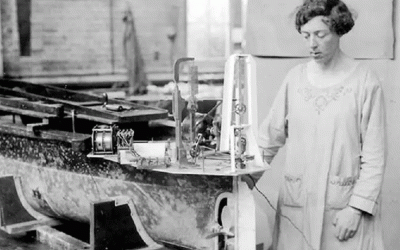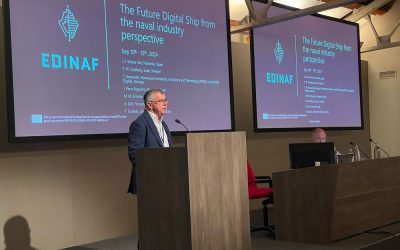The Naval Architect: March 2020
Building on extensive research over the years into the potential of water injection and emulsified fuel as a method of curbing NOx emissions, MAN Energy Solutions has now taken the work forward to the point where the technology is proposed as an effective abatement technology to meet IMO Tier III criteria.
Although it is well understood in the industry that mixing water with the fuel prior to injection can lessen NOx, the achieved reductions were, until recently, not sufficiently large to reach Tier III levels. The problem has been that ignition problems restricted the amount of water used. Mixing large amounts of water into diesel can induce a prolonged ignition delay which may result in knocking and increased hydrocarbon (HC) emissions due to poor combustion.
However, over the course of the past decade, advances in dual fuel (DF) technology has enabled diesel engine operation on both gaseous and liquid fuels that do not readily auto-ignite. The diesel pilot injection in MAN’s ME-LGI engine, for example, ensures stable ignition and combustion of poorly igniting fuels, making it possible to burn water and fuel mixtures with water fractions that significantly exceed previously attempted levels.
MAN has already developed the ME-LGI dual-fuel two-stroke engine for operation not only on marine gas oil (MGO), marine diesel oil (MDO) or heavy fuel oil (HFO), but also on methanol, a low-flashpoint, liquid fuel. When running on methanol, a little HFO, MDO or MGO is used as a pilot fuel, significantly reducing emissions of CO2, NOx, SOx and, according to MAN, eliminating methanol slip.
Seven chemical/product tankers introduced by Waterfront Shipping since 2016 have been fitted with ME-LGI propulsion engines running on methanol.
A series of tests with engines running on water/methanol blends and water/fuel emulsion have indicated that the requisite engine performance can be achieved while keeping NOx within the Tier III limits, obviating the need for selective catalytic reduction (SCR) or exhaust gas recirculation (EGR) systems.
Investigations were conducted using the 4S50ME-T test engine at the Tamano complex of Mitsui Engineering & Shipbuilding (MES). The engine had previously been converted for operation on methanol fuel, i.e. as an ME-LGIM model.
In the case of a water/methanol mixture, the test programme demonstrated that a fuel penalty is incurred, in the order of 2g-6g/kWh of methanol. However, MAN said that this has been significantly reduced through subsequent development work.
Whether for methanol or diesel-water emulsions, the best results are obtained when the engine performance parameters are tuned to the most fuel-efficient settings, whereby higher in-cylinder pressures are employed. NOx is then brought back below Tier III thresholds by using the required amount of additional water.
Using methanol as the main fuel, 20-40% water is needed in the mixture to ensure Tier III compliance, the precise amount depending on engine load. The comparatively low water proportion is attributable to the colder methanol flame, relative to diesel, that gives a 30% reduction in NOx even without adding water. The tested concept was based on the pilot injection of diesel fuel to ignite the emulsion.
The company asserts that the ME-LGIM-W(emulsion) solution offers savings in capital costs and footprint relative to adopting SCR or EGR with a main engine installation. The technical modifications necessitated to introduce emulsified methanol into LGIM engines are not extensive.
One of the factors that must be taken into account is the amount of time that the subject vessel will spend in Tier III zones, as the volume of fresh water to be carried and produced will bear on comparative running costs.




